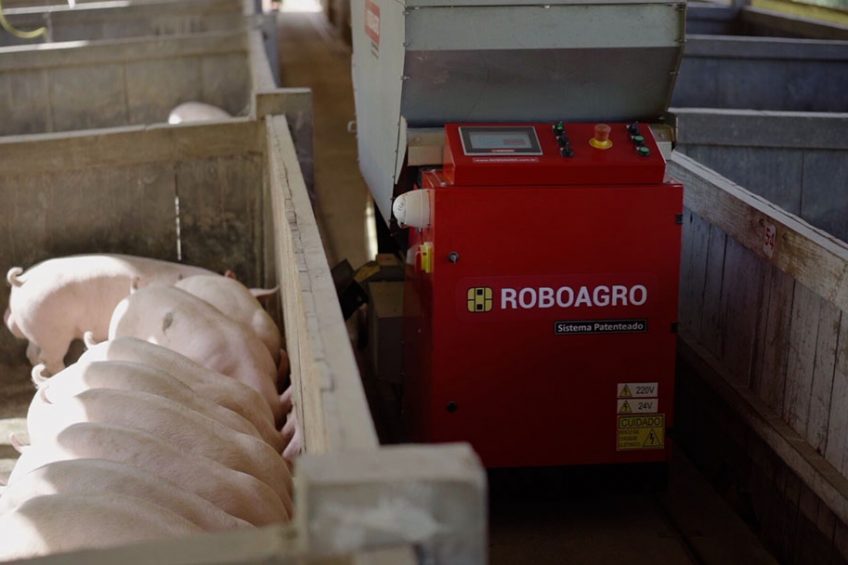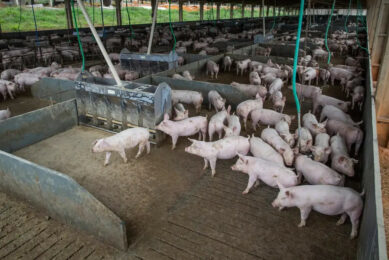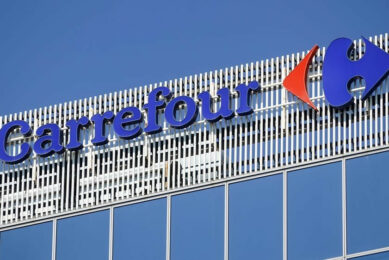Robot feeds pigs while playing classical music

Classical music can positively influence pig performance – so much was known. A feeding robot has been developed in Brazil, playing exactly those tunes.
Roboagro, based in Caxias do Sul city, Rio Grande do Sul state, Brazil, developed a robot capable of both feeding pigs and generating savings of € 4,200 per year for each batch of 1,000 animals in more than 500 farms in southern Brazil. The robot plays classical music and uses linear feeders, where the animals are divided in pens in order receive the exact amount of feed for each meal during the day.
At ease feeders
Studies published in 2016 showed best results for this type of distribution in relation to ‘at ease’ feeders. Another benefit is the possibility to reduce the number of animals per pen, influencing positively meat quality and herd management.
The technology, called ‘pig farming 4.0’, reduces labour costs and improves meat quality due to better animal welfare, in addition to bringing benefits to the quality of life of farmers. The system feeds the pigs using a predetermined schedule and realises adjustments real-time according to consumption, with a minimum level of human contact. In other words, this process increases precision and controls each kg of feed that is distributed per pig.
Giovani Molin, director of Roboagro, explained, “In today’s feeders, there is a lot of waste and a lack of management and information. The robot adjusts offers the farmer the opportunity to adjust his production according to market variations and input costs. It makes the business more competitive.”

500 units in 3 states in Brazil
Currently, the ‘Pig Feeder Robot’ can already be found in about 500 units in operation in 3 southern states in Brazil, i.e. Paraná, Santa Catarina and Rio Grande do Sul – altogether corresponding to 66% of Brazil’s entire pig production.
The use of classical music in pig farms
The use of classical music when distributing feed to animals is based on several studies that prove the effectiveness of this type of strategy in the growth phase of pigs. One of these surveys was conducted by a team from the University of São Paulo (USP) that demonstrated ”sensorial enrichment of the environment” leads to better behaviour, maintenance of growth rate and a lower feed consumption.











